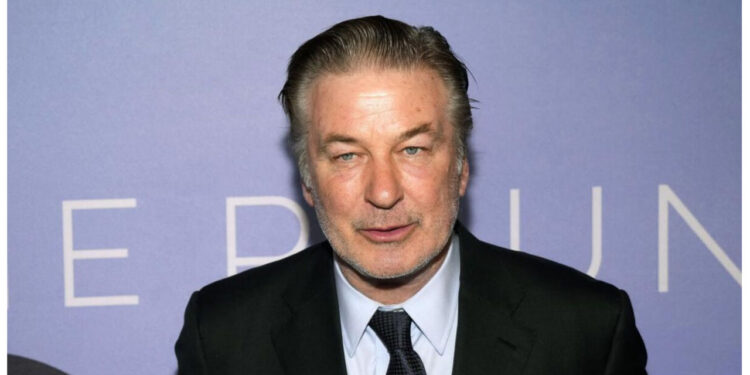Alec Baldwin has requested the dismissal of a grand jury indictment against him, and a New Mexico judge is currently considering his request. The court hearing to address this matter is set to take place on Friday in Santa Fe.
Baldwin’s motion to dismiss the indictment contends that the grand jury was presented with misleading and biased testimony regarding the revolver used in the tragic shooting.
Special prosecutors are accusing Baldwin of attempting to escape culpability and have stated that they followed grand jury protocols. They have highlighted the contradictions in Baldwin’s statements to law enforcement, workplace safety regulators, and in a televised interview. A jury trial has been scheduled for July.
After Hannah Gutierrez-Reed, the movie weapons supervisor, was sentenced to the maximum of 1.5 years in a state penitentiary for involuntary manslaughter in the case of Hutchins’ death, prosecutors shifted their focus onto Baldwin.
Prosecutors dropped the previous involuntary manslaughter charge against Baldwin in light of information suggesting that the gun he was holding may have been tampered with and malfunctioned during the incident. However, a recent analysis of the firearm has allowed prosecutors to revive the case.
The indictment against Baldwin presents two potential avenues for prosecutors to pursue. One option is to focus on the negligent use of a firearm. Alternatively, they could seek to establish, beyond a reasonable doubt, that Baldwin caused Hutchins’ death without exercising “due caution” or “circumspection.” These terms refer to an act committed with complete disregard or indifference for the safety of others.
Defense attorneys argue that the grand jury was directed away from hearing testimony from key witnesses, such as the film’s director, assistant director and safety coordinator Dave Halls, and props master Sarah Zachry. It is worth noting that Halls had previously pleaded no contest to negligent handling of a firearm and had served a six-month unsupervised probation.
During the two-week trial of Gutierrez-Reed, attorneys representing Baldwin and the general public were provided with a rare opportunity to gain insight into the potential course of the actor’s own trial.
Baldwin played a significant role in the trial, with both the prosecution and defense emphasizing his position as a co-producer and the lead actor on the movie “Rust.” They carefully analyzed video footage of Baldwin prior to the tragic shooting, searching for any indications of lapses in firearm safety.
According to prosecutors, Gutierrez-Reed unintentionally brought live ammunition onto the set of “Rust,” despite it being explicitly prohibited, and neglected to adhere to fundamental gun safety protocols.
Gutierrez-Reed is currently appealing her conviction, which was determined by a jury in March, to a higher court. However, she has not yet filed in-depth arguments. During her sentencing, Gutierrez-Reed expressed to the judge that she made an effort to perform her best on the set, despite facing challenges such as a lack of sufficient time, resources, and staff.
Following the shooting incident in New Mexico, production for the film “Rust” was able to continue in Montana. This was made possible through an agreement with Matthew Hutchins, the husband of the late Halyna Hutchins, who was tragically killed on set. As part of the agreement, Matthew Hutchins was named an executive producer for the film. In addition, a civil lawsuit filed by Matthew Hutchins and their son was resolved through a settlement, the details of which were not publicly disclosed.
According to defense attorneys, Baldwin was presented with a plea deal for a “minor offense” last year, but the offer was unexpectedly withdrawn before the deadline for a response.










